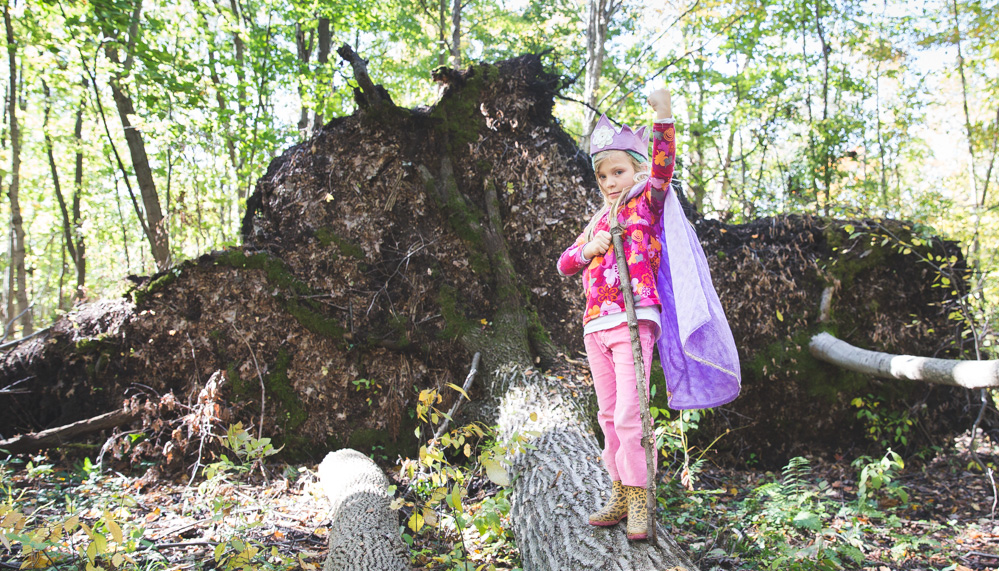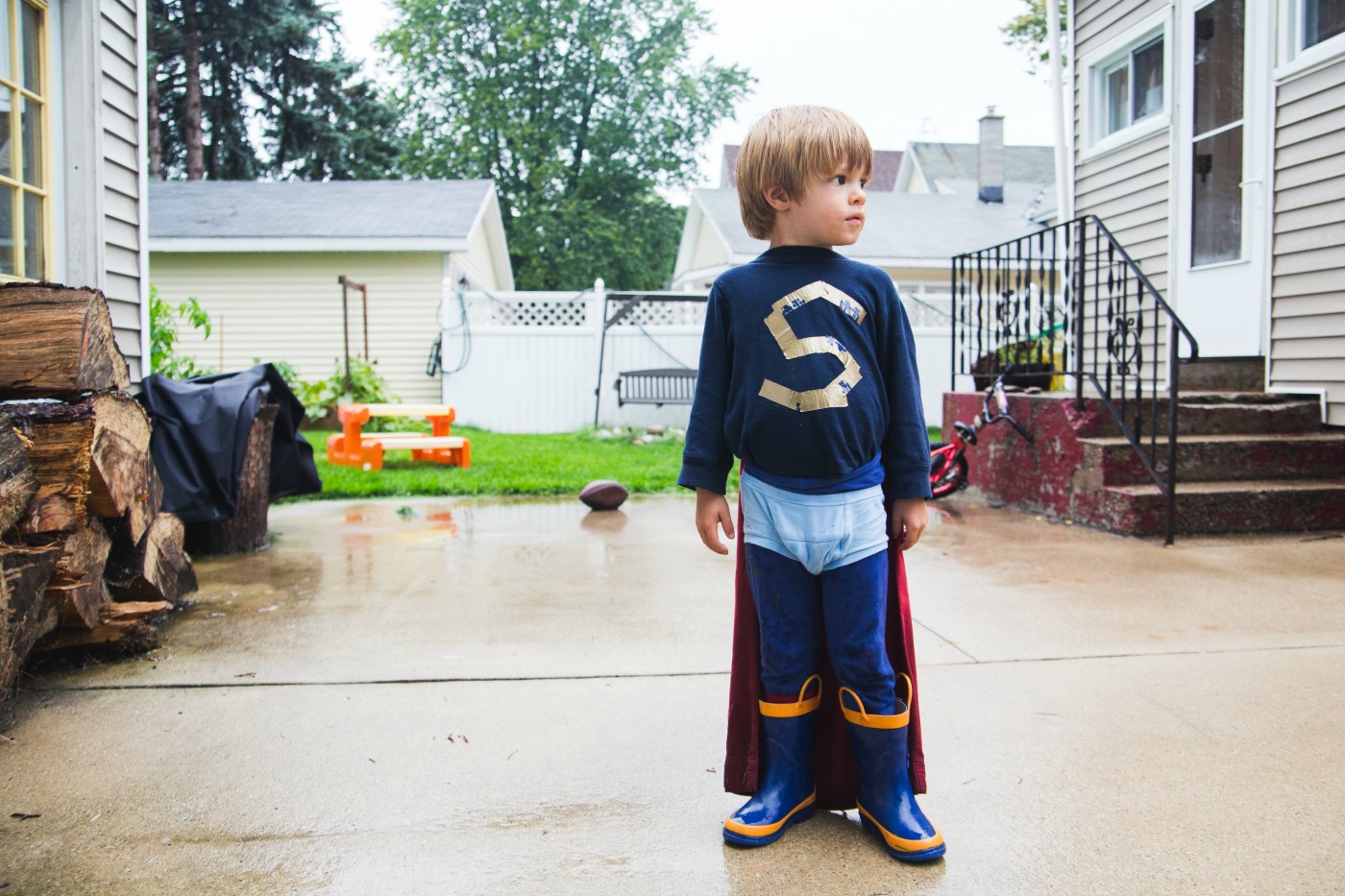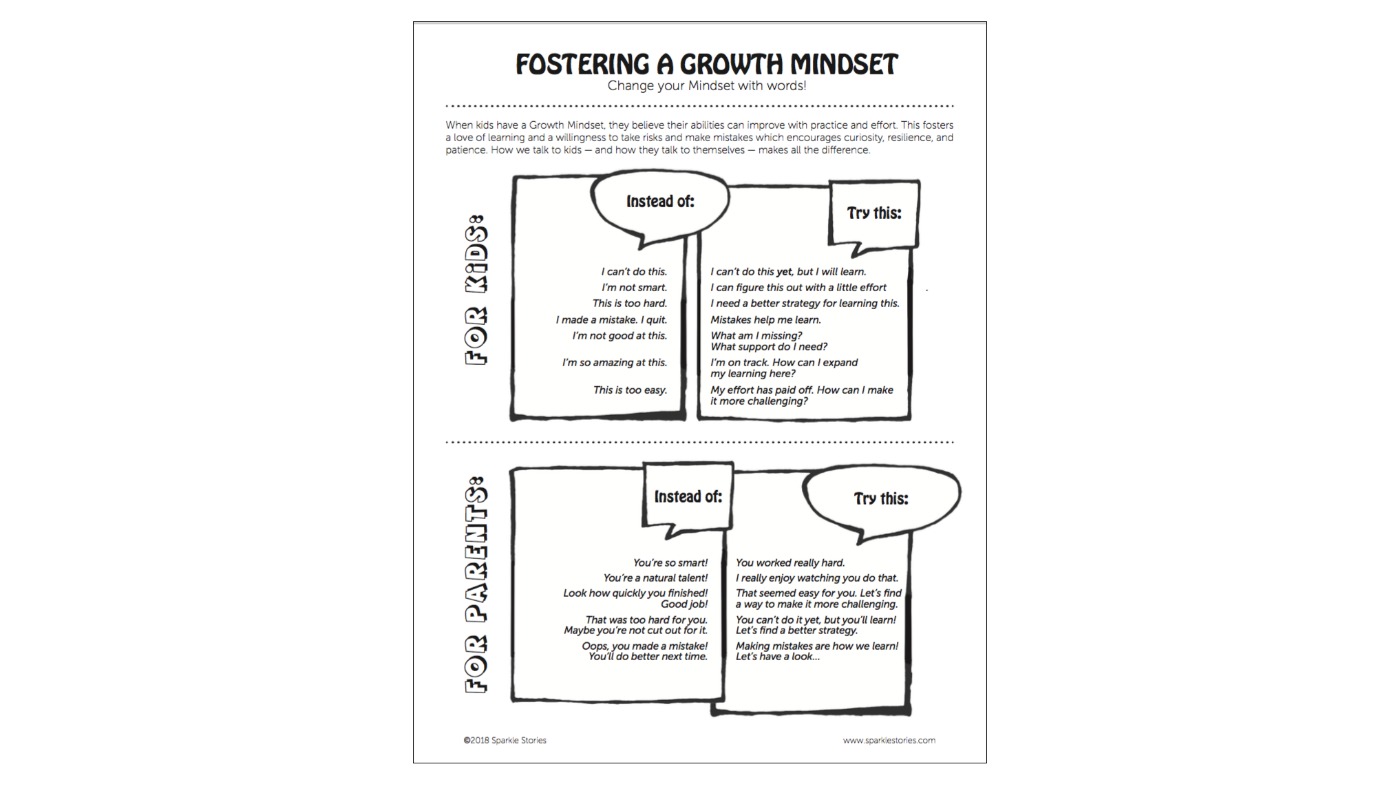The Magic of “Mindset”
Have you ever had a moment when you thought you’ve finally found the best parenting tool ever? I’m having that moment right now. The parenting tool?
“Fostering a Growth Mindset.”
My very first, very basic exposure to the concepts within “Growth Mindset” changed the way I talk to my kids, as well as the way I think about myself and others.
Some examples of Growth Mindset:
Say a middle schooler finds learning a language hard. She could say to herself, “I’m no good at this.” Or conversely she could say, “I need a different strategy to help me learn.”
Here’s another, directly from our house: our younger son used to say “I can’t draw. I give up.” Had I known about Growth Mindset, I could have helped him to think, “I can’t draw the way I want to yet, and I really want to learn. What do I need to help me?”
So what is it exactly?
The term “Growth Mindset” was coined by Stanford University Psychology professor Carol Dweck. She worked with thousands of children, accumulating decades of research and this is what she saw: success in the classroom had less to do with innate ability and everything to do with mindset.

In “Growth Mindset”, you believe your abilities can be developed, such as: intelligence can improve with study and practice, or physical abilities can improve with training and effort. Plus, challenges and mistakes are opportunities to learn and grow. You’re inspired to take risks and give the time and effort to learning.
Growth Mindset fosters a love of learning and a willingness to take risks and make mistakes, allowing for the development of resilience and patience.
This contrasts with “Fixed Mindset” in which one believes that smarts and talents are innate, fixed traits that can’t truly be cultivated. This often leads to limiting beliefs such as: if a person is good at something, she is “smart,” but if that person is not good at something, then she must be “dumb.”
Personally, I’m less interested in “achievement” than I am in fostering a love of learning and a confidence that one can learn or do just about anything they’d like if they are willing to put in the effort. I’m also thrilled by the freedom that Growth Mindset offers. It opens a world of possiblities to all of us.

So, what can we do?
There’s LOTS you can do, largely in the way you communicate with your children.
For practical suggestions, I’m going to reference one of the experts I’ve enjoyed reading.This is from Dr. Sarah McKay’s wonderful article “Eight Ways to Encourage a Growth Mindset in Kids”:
Eight Tips for Promoting a Growth Mindset in Kids:
Help children understand that the brain works like a muscle: it can only grow through hard work, determination, and lots and lots of practice.
Don’t tell students they are smart, gifted, or talented, since this implies that they were born with the knowledge and does not encourage effort and growth.
Let children know when they demonstrate a growth mindset.
Praise the process. It’s effort, hard work, and practice that allow children to achieve their true potential.
Don’t praise the results. Test scores and rigid ways of measuring learning and knowledge limit the growth that would otherwise be tapped.
Embrace failures and missteps. Children sometimes learn the most when they fail. Let them know that mistakes are a big part of the learning process. There is nothing like the feeling of struggling through a very difficult problem, only to finally break through and solve it! The harder the problem, the more satisfying it is to find the solution.
Encourage participation and collaborative group learning. Children learn best when they are immersed in a topic and allowed to discuss and advance with their peers.
Encourage competency-based learning. Get kids excited about subject matter by explaining why it is important and how it will help them in the future. The goal should never be to get the “correct” answer, but to understand the topic at a fundamental, deep level, and want to learn more.
(reprinted with permission)

Practical Examples
The best way for me to learn is through practical examples, so we’ve created a quick printable for you with examples of how to reframe certain thoughts into a Growth Mindset model.

You’ll see examples that will help parents change the language we use with our kids, as well as suggestions to help your kids change the way kids talk about themselves.
Download the Growth Mindset Examples Printable!
Want to learn more?
Here are more of my favorite references:
First: the Psychology Department at Stanford University created MindsetKit, a resource for parents and educators.Their free 30-minute course for parents is very clear and easy to digest.
Need inspiration? Listen to Carol Dweck’s Ted Talk(Trust me: she’ll have you at “Not Yet…”)
If you want more from the original source, read Carol Dweck’s Mindset. It’s an enlightening read filled with inspiring examples. I read it cover to cover.
If you like colorful printables and practical step-by-step instructions, the web page “How to Teach Growth Mindset to Kids” lays out a week-by-week process for employing Growth Mindset thinking in your own house and offers some sweet tools you can employ.
Another book that I must mention: The Yes Brain.The concept of Growth Mindset is embedded in the recommendations, and it too is filled with helpful tools for encouraging curiosity and resilience.
And lastly, we have stories!
We made a playlist of our very best stories that encourage resilence and patience while also valuing the learning that comes from mistakes.
You’ll find it here.
Has this been helpful?
Here at Sparkle we not only offer stories — we also share projects, ideas, and resources to support families in creating inspired, connected, and kindness-filled households. Like this article, we bring the content right from the “classroom” of our own home!
If this article proves to be helpful to you, we’d love to know. Email us at kindwords@sparklestories.com.
About the authors
-

Lisabeth Sewell
Doer of Many Wonderful and Odd Things (including CEO)Lisabeth Sewell has worn many hats at Sparkle over the years, from Sparkle Kitchen Blogger to Editorial Director to Doer of All Odd Jobs. Her primary role is as CEO.


